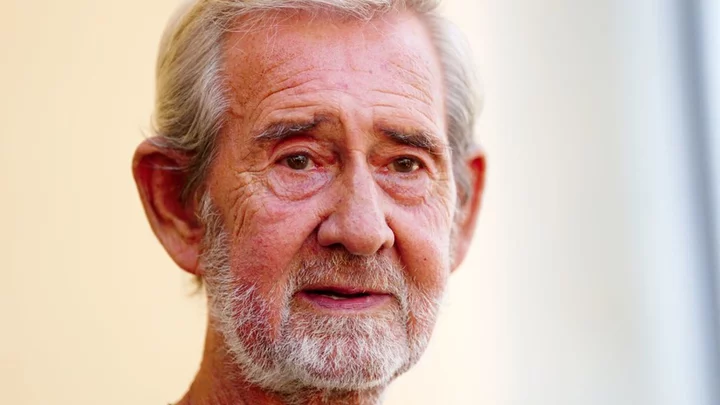
David Hunter: Appeal against Cyprus manslaughter verdict begins
David Hunter was convicted of the manslaughter of his ill wife but could be tried again for murder.
2023-10-26 16:24
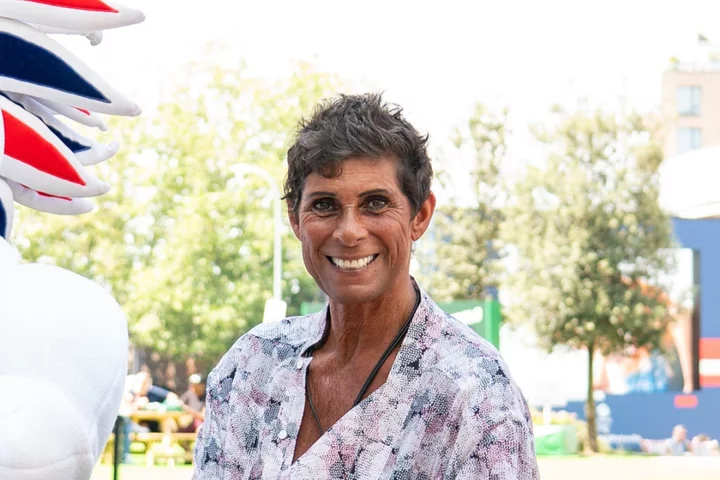
Fatima Whitbread supporting new fostering campaign, as research finds ‘misconceptions put people off’
Misconceptions including being single or too old are said to be putting people off fostering at a time of dire need for more carers, as Olympian Fatima Whitbread and poet Lemn Sissay front a new recruitment campaign. Radio presenter Pandora Christie has also joined efforts to get more people to consider fostering, as the trio – who all had experience living in care as children – shared photographs of their younger selves in support of the campaign. The National Fostering Group (NFG), which describes itself as the largest network of independent fostering agencies in the UK, said its research had shown thousands of carers are needed across Great Britain. Sissay, who has previously detailed his experiences in the British care system, said fostering or adoption is “the greatest thing a human being can do for another”, while Whitbread, who grew up in children’s homes, said it is “a unique chance to make a real difference to a child’s life”. The NFG described the care system as being “at a critical point” and said information it had received from 128 local authority fostering agencies in England, Scotland and Wales suggested almost two thirds of those had seen a rise in young people going into care in the last 12 months and an estimated 10,500 foster carers are now “urgently needed across the country”. But its polling of 2,000 adults suggested less than a fifth (14%)of people would consider fostering – a figure the NFG said could be higher if certain misconceptions were not held. More than a third (34%) of people felt they were too old to foster – with most of those who said this in the 65-plus age bracket, but 18% aged between 55 and 64 and 11% aged 45 to 54, the NFG said. Other reasons included already having their own children (13%), being single (13%), working (11%) and being disabled (9%), it added. Steve Christie, chief executive of the NFG said: “Many people perceive there to be barriers to becoming a foster carer that simply aren’t true. “We will consider people regardless of age, marital status, gender, sexuality, disability or employment status. “Anyone who has room in their home and their heart could be a foster carer, and most of our foster carers say that fostering is the best thing they have ever done.” Backing the campaign, Olympic javelin champion Whitbread said: “Foster carers offer children and young people a safe, loving and nurturing home when they can’t live with their birth families. This means they have a unique chance to make a real difference to a child’s life.” Heart radio presenter Christie, who went into foster care aged nine, said: “Foster parents are fundamental in creating a safe home environment and support system for children and young people who find themselves needing care. “The amount of futures they help to change and the difference foster parents can make to a child’s life is indescribable.” Sissay, who wrote about his time in care in his autobiography, My Name Is Why, said: “A child will test you emotionally, spiritually, financially, throughout your life, so to foster or adopt a child is the greatest thing a human being can do for another.” For more information on fostering, visit www.nfa.co.uk. Read More 5 key coat trends to complete your autumn/winter wardrobe 12 ways to weave some woodland wonder into your home Hibernation mode: 5 small self-care adjustments to make before the clocks change 13 possible cancer symptoms you should get checked out Neglecting women’s health at work could cost UK economy £20.2bn a year – analysis Nearly three-quarters of mothers feel invisible, study suggests
2023-10-26 16:15
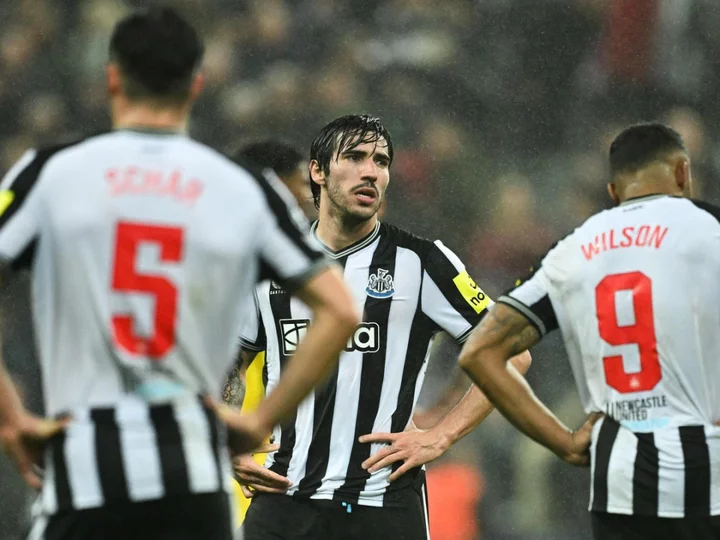
Eddie Howe’s tactical move exposes glaring Newcastle weakness in Dortmund ‘lesson’
The Champions League has seen Newcastle at its finest, complete with the surreal vision of Sean Longstaff upstaging Kylian Mbappe. There is a temptation to imagine Dan Burn is still somewhere in the Tyneside sky, soaring above Milan Skriniar to head in against Paris Saint-Germain. There is a similar temptation to say that Newcastle were brought down to earth by Borussia Dortmund. It may be more accurate to say Eddie Howe never left it. He met one of his most celebrated predecessors, Kevin Keegan, on Monday. The former Magpies boss was a dreamer. “You have to be,” said Howe, with Keegan’s example leading him to entertain the prospect of winning the Champions League. But Howe isn’t a dreamer, not really, anyway. A day, a defeat and a downpour later, he reflected: “We have to be at our best to win and if you dip below that it is tough to get results at this level.” And in this pool, the most competitive of all, Newcastle have to be at their best to claim victory in a match, let alone the entire competition. They were against Paris Saint-Germain; they were not against Dortmund. At a stroke – the right boot of Felix Nmecha, replacing Jude Bellingham this season, or of bad luck, as Callum Wilson and Anthony Gordon both struck the woodwork – they may have been rebranded: potential winners, the team who tore PSG apart, could instead exit early. They now have successive away games, with the evidence that Dortmund are well equipped to play against them ahead of a trip to Germany next. “We're up against elite teams,” Howe said. “You make half a mistake and get punished.” If there is a truth to that – and Nmecha’s winner was scarcely the consequence of a glaring error – the greater issue was that Newcastle did not reach their heights. “We probably weren’t at our best and in this competition we have to be.” Howe said. They have days when they overwhelm opponents: 4-1 against PSG, 6-1 against Tottenham. But their quality is most evident when allied with a blur of energy. And when there isn’t that synergy of physical and technical that makes them appear unstoppable, they are a fundamentally workmanlike side who betray their origins. Which, as they spent much of a 1-0 loss to Dortmund with six players on the pitch who Howe inherited, is a group who have overachieved: look beyond the £400m spend, the concept of Saudi Arabian sportswashing and the grandiose ambitions, and some of them were in a relegation battle two years ago. A Champions League loss represented progress in that context. But if there were symbolic substitutions of the locals Longstaff and Burn, stripped of the superhuman powers they somehow possessed against PSG, perhaps the reality is that they could have been beaten twice in three games. Nick Pope’s heroics brought a point in Milan; he was similarly good against Dortmund but in vain. They have drawn a blank twice in three matches. They had a lone, late shot on target in San Siro. While they hit the woodwork twice, they only actually had three on target against Dortmund, and just one in the last 80 minutes. “In the second half the ball just wouldn’t go in for us,” Howe said. It was a legitimate lament, yet there are days when a shortage of natural creativity, of game-changing flair, of a natural No 10 can threaten to be their undoing. Edin Terzic arrowed in on Newcastle’s strengths. “A team that was pressing high with a very intense approach,” the Dortmund manager noted. It is a strategy that can serve Newcastle well but running alone did not unlock the Bundesliga’s runners-up. Moving Kieran Trippier into midfield in the second half was an attempt to get United’s best creator into a more advanced role. He may be required there more often. Sandro Tonali was not hired as a fantasista but he was designed to bring an injection of class. But his season seems over: not officially yet, but a ban beckons. Elliot Anderson has joined the injury list. In the forward line, Newcastle, already without Harvey Barnes for months, seem to be losing Jacob Murphy for a similar time with a dislocated shoulder. For Alexander Isak, a recurrence of a groin strain means he will play again soonest, but be out for a while. They are starting to look short of players. “There are some tired bodies,” Howe said. And Newcastle can require a physical edge, especially in meetings of evenly-matched teams. “A lesson in how fine the margins are going to be,” Howe rued. Particularly in Group F: this pool, of pedigree and money, of former winners and clubs who aspire to join them in that select group, may be the most intriguing. It is a product of circumstances. Newcastle’s lack of a recent record in Europe meant they were fourth seeds. Now they are plunged into peril. “The table looks very, very tight,” Howe said; his side kicked off in first, finished the night in third and could be out of the competition before they host AC Milan in it. They will always have Paris, but now the danger is their Champions League campaign in effect ends in the French capital. Read More Newcastle given Champions League reality check as summer decision returns to haunt them Eddie Howe provides update on Alexander Isak and Jacob Murphy injuries after Borussia Dortmund defeat England’s Euro 2024 squad: Who’s on the plane, who’s in contention and who has work to do?
2023-10-26 15:28

Freelance director reveals why he cast John Cena in comedy role: 'He was perfect right away!'
Pierre Morel thinks John Cena has "amazing" versatility as an actor as he hailed the wresting legend for his performance in 'Freelance'.
2023-10-26 15:27

Shingles explained as Holly Willoughby takes time off from This Morning
Holly Willoughby has announced that she “may not” be c-hosting ITV’s This Morning in the coming week due to contracting shingles. The 42-year-old TV presenter wrote on her Instagram Story on Sunday (16 April): “Hi, just to let you know, I may be away for the rest of the week as I have shingles.” “I’ll be back as soon as I’m better. Huge love,” she added. Shingles can be a very painful experience that affects around one in four adults in their lifetime. The infection, also known as herpes zoster, is caused by the varicella-zoster virus which also causes chickenpox. The virus is extremely common, with more than 90 per cent of the world’s population having it. It is usually contracted when people get chickenpox as children, but the virus does not go away, instead, it will lay dormant in the body’s nervous system for years. For about a third of people who get the virus, it will reactivate some years later and cause shingles. Here is everything you need to know about the symptoms of shingles and how to treat it: What are the symptoms? A person who gets shingles will experience a painful rash that can occur anywhere on the body. Early signs of shingles could be a tingling or painful feeling in an area of skin, a headache or feeling generally unwell. According to the NHS, the rash usually looks like “a single stripe of blisters that wraps around the left side or right side of your torso”. They appear as blotches on the skin that become itchy blisters, which can break and ooze fluid. The rash can be red, but this can be harder to see on brown or black skin. The rash can also appear on your face, eyes and genitals. If it appears around your eyes, it can affect your sight or hearing and make it hard to move one side of your face. According to the Mayo Clinic, if left untreated, the infection can lead to permanent eye damage. After a few days, the blisters will dry out and become scabs. If a rash appears on both the left and right side of the body, it is unlikely to be shingles. How is it treated? Shingles can take up to four weeks to heal, but can have more severe consequences in older people above the age of 50. If the symptoms are not serious, patients can take paracetamol to ease the pain and use a cool compress on the rash several times a day to soothe it. It is also recommended that you keep the area with the rash clean and dry to reduce the risk of infection and wear loose-fitting clothing. But there are some situations in which it is recommended you contact your GP or call 111. Due to the heightened risk in older people, you should seek help if you are aged 50 or older. People with a weakened immune system should also contact the health service, as well as those who have a rash that is widespread and painful, or has appeared near an eye. Are shingles contagious? Shingles are not contagious and you cannot spread them. However, if you come into contact with someone who has not had chickenpox and has not been vaccinated against chickenpox, they could catch chickenpox from you. The NHS recommends you avoid being around pregnant people who have not had chickenpox before, people with a weakened immune system, and babies that are less than a month old. Is there a vaccine against shingles? Yes, but it is only available on the NHS to people in their 70s. Shingles can be fatal for around one in 1,000 over-70s who develop it. The vaccine injection only needs to be given once. However, some people who cannot have the routine vaccine for health reasons will need two doses. Getting the vaccine will reduce your risk of getting shingles, and if you do get it, your symptoms may be milder and the illness shorter. If you already had shingles, you can still get the vaccine to protect yourself against developing it again. You may have to wait up to one year after you have recovered from the illness before you can get the vaccine. Read More Five signs of sepsis you need to know and act on immediately EuroMillions winner burned through £40m by spending £100K a week Tech entrepreneur, 45, spends $2m a year on reverse ageing to achieve body of an 18 year old: ‘Horrifying’ Shingles symptoms, what causes it and how to treat the virus When do the clocks go back in the UK this year? Hibernation mode: 5 small self-care adjustments to make before the clocks change
2023-10-26 15:26
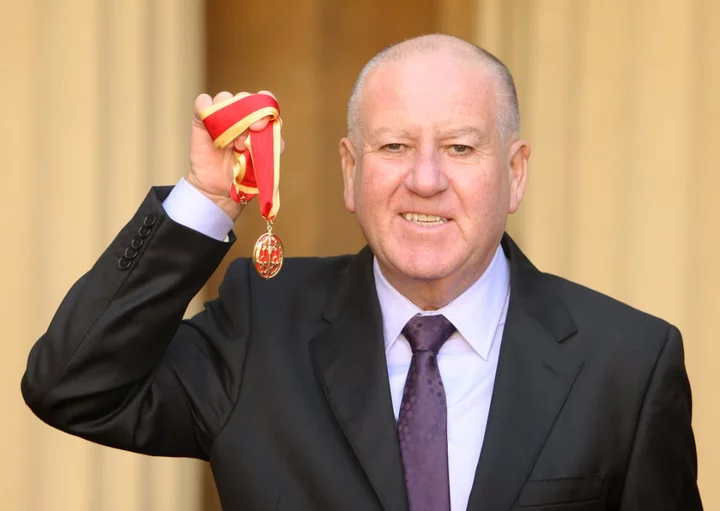
Former Sunderland chairman Sir Bob Murray on Newcastle, sportswashing and football’s forgotten roots
There were many moments that Sir Bob Murray could point to as illustrating how much football has changed, but one stands out for what he feels was a lack of basic decency. “My wife used to go to the boardroom at Chelsea, and they would thoroughly search her handbag,” he says. “She’s the woman married to the chairman of Sunderland.” The reason for that was out of the rigorous security concerns for Roman Abramovich, an ownership that Murray declares himself “personally diametrically against”. The 77-year-old even argues in his new book, I’d Do It All Again, that the entire issue of modern sportswashing “might have started with Abramovich picking up 20 trophies”. The deeper point is how some of football’s more dignified traditions, such as decency to rival clubs, were cast aside because of far loftier geopolitical concerns. Abramovich was a billionaire with a huge security detail, so that superseded the rest of the game. There is an obvious contrast with a great football figure that has been so celebrated this week, as Murray recounts in his book. The former accountant had taken his 10-year-old son James to see Sunderland’s match at Old Trafford, where Sir Bobby Charlton arranged for him to have his photo taken with the Champions League trophy. “When we played them at the Stadium of Light in the return fixture six months later, Sir Bobby had remembered the photo and handed James the picture. I was very touched by that; he’d showed great kindness and thought. Sir Bobby and his wife, Norma, always treated Sue and me like royalty at Old Trafford. In return, I always made sure I gave him some ham and pease pudding and stottie cake to take home whenever he came to our home games.” While so many of Murray’s stories raise a smile in the same way, it is very quickly apparent on talking to him about the book that this is no mere folksy look at what football used to be. It is about what the game is supposed to be, and what it represents. Drawing on his experience from 20 years as chairman of Sunderland, and having taken them up to the Premier League, Murray feels it is necessary to address the most complicated of themes. “Sportswashing” and the game’s many financial issues come up a lot, as he believes all of this is so damagingly moving the sport away from the community core it is supposed to be about. That ethos is visible in Sunderland’s Stadium of Light itself – with the financially sustainable way it was built seeing Murray brought into the St George’s Park and Wembley projects by the FA – as well as his aims for the book. He has insisted that 100 per cent of the cover prices goes to the Foundation of Light, the club-associated charity he set up “to use the power of football to invest in the communities we serve and to improve the education, health, wellbeing and happiness of people, no matter who they are”. It can be purchased at www.sirbobmurraybook.com. A core of the book of course covers Sunderland’s fortunes, from Roy Keane and the Niall Quinn-led takeover by Drumaville to Peter Reid’s transfers and tribulations, as well as the simple joy of having Kevin Phillips repeatedly lash the ball in after a Quinn knock-down. “It's the pace that things change,” Murray laments. “I think people don't realise it. This league is only 30 years old, it's in its infancy and yet... in 2000 I had the Golden Boot of Europe in Kevin Phillips. That was a wonderful thing to have, a lad that wanted to stay at Sunderland, that was 23 years ago.” It feels impossible now, because of how football’s economic infrastructure has been allowed to change. “It's just accelerating, we're just at the beginning of this journey... it's not going to get any better. We don't have any political leadership on it.” There is naturally a lot of discussion about Sunderland’s greatest rivals. While Murray is highly critical of the Public Investment Fund ownership of Newcastle United, and what it all represents, he believes the path to that point is instructive. He points to a period where both clubs reached agreements with broadcasters. “Where we’d created new shares, Newcastle United did a media deal of their own by selling existing shares to rivals NTL. The Newcastle directors received a lot more money – around £15m for themselves. The difference was it went straight into their pockets, while we took a share dilution so that ours could go straight into building and funding the Academy of Light. (We created new shares, so that the company – the club – got the money; Newcastle sold existing shares so that the directors got the money; then four years later the club bought some more Hall family shares, bringing the Hall income from Newcastle United to £20m. Add in salary packages and dividends paid to all shareholders and you’re looking at £36m to the Halls and £8m to Freddy Shepherd. And this was all before the sale to [Mike] Ashley.) “The receipts from the public flotation of Sunderland AFC all went to pay for the Stadium of Light and the Academy of Light. The receipts from the public flotation of Newcastle United helped pay back the Hall family loans. Sky had paid vast premiums to what the shares were really worth – but all the money went on the Academy of Light, and we had no debt. What do I think? I think we put the club first. Hall and Shepherd’s legacy to Newcastle was to get the highest price. That’s why they had 10 years of Mike Ashley. Now they’re owned by a Saudi. That’s your legacy…” While some would no doubt accuse Murray of jealousy or all the usual claims, that would be to completely misunderstand his perspective. This isn’t just about competing at any cost. It’s about creating something sustainable for the community. “It’s the Newcastle supporters I feel really sad for, they’ve got great tradition and pedigree, great supporters, very passionate, love their club, I'm concerned about them really. That’s what I’m concerned about. I don’t like them on a Saturday 3 o’clock, but after that I've got no problem with them.” He is highly critical of the Premier League’s leadership. “Who knows where it’s going to end? Probably with more clubs losing their soul.” Murray elaborates on this more in a chat about the book. “We've got a fantastic club, lots of youngsters, ladies, great mix, generations, really proper football club and we're very fortunate to have the owner we've got, but I didn't do the book because I'd been in the game so long again, and I did St George's Park and Wembley, I thought I should voice my concerns, that's to the advantage you spend a bit of time and effort on sportswashing, because it's quite new in the north east. That's where I am, I put my head above the parapet really, I didn't write the book to do sportswashing to be truthful. It's the issue isn't it.” Murray hones in on what this is in the book. “Sportswashing presents huge concern for the future. It’s money through the back door that hopefully will be investigated properly. And it goes back to that old chestnut of the supporter not being able to influence the thing he or she loves. In fact, it’s even worse: supporters are now turning their heads and not looking where the cash comes from as long as they are winning trophies or qualifying for Europe – that’s the ultimate triumph of sportswashing.” Speaking now, he brings much of this down to a core driving motivation. “There’s a lot of self interest because we have to win games. But football should be for the good of society. That's what we're all about really isn't it. “It reflects on them, because it's the power of the brand. We can get people to live better lives due to the crest. “That’s what the game's about.” Sir Bob Murray’s book can be bought at www.sirbobmurraybook.com, with 100% of the cover price going to the Foundation of Light Read More Eddie Howe’s tactical move exposes Newcastle weakness in Dortmund ‘lesson’ Newcastle given reality check as summer decision returns to haunt them One of those nights – Eddie Howe bemoans fine margins after Newcastle defeat Eddie Howe’s tactical move exposes Newcastle weakness in Dortmund ‘lesson’ Newcastle given reality check as summer decision returns to haunt them One of those nights – Eddie Howe bemoans fine margins after Newcastle defeat
2023-10-26 15:25
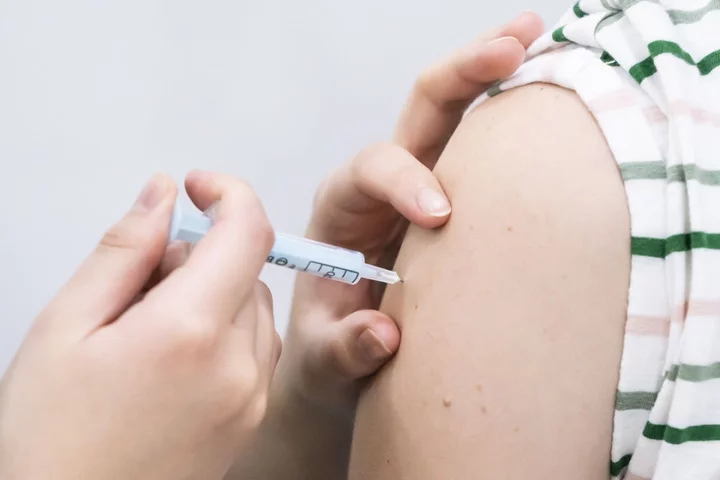
Shingles symptoms, what causes it and how to treat the virus
Shingles can be a very painful experience that affects around one in four adults in their lifetime. The infection, also known as herpes zoster, is caused by the varicella-zoster virus which also causes chickenpox. The virus is extremely common, with more than 90 per cent of the world’s population having it. It is usually contracted when people get chickenpox as children, but the virus does not go away, instead, it will lay dormant in the body’s nervous system for years. For about a third of people who get the virus, it will reactivate some years later and cause shingles. Here is everything you need to know about the symptoms of shingles and how to treat it: What are the symptoms? A person who gets shingles will experience a painful rash that can occur anywhere on the body. Early signs of shingles could be a tingling or painful feeling in an area of skin, a headache or feeling generally unwell. According to the NHS, the rash usually looks like “a single stripe of blisters that wraps around the left side or right side of your torso”. They appear as blotches on the skin that become itchy blisters, which can break and ooze fluid. The rash can be red, but this can be harder to see on brown or black skin. The rash can also appear on your face, eyes and genitals. If it appears around your eyes, it can affect your sight or hearing and make it hard to move one side of your face. According to the Mayo Clinic, if left untreated, the infection can lead to permanent eye damage. After a few days, the blisters will dry out and become scabs. If a rash appears on both the left and right side of the body, it is unlikely to be shingles. How is it treated? Shingles can take up to four weeks to heal, but can have more severe consequences in older people above the age of 50. If the symptoms are not serious, patients can take paracetamol to ease the pain and use a cool compress on the rash several times a day to soothe it. It is also recommended that you keep the area with the rash clean and dry to reduce the risk of infection and wear loose-fitting clothing. But there are some situations in which it is recommended you contact your GP or call 111. Due to the heightened risk in older people, you should seek help if you are aged 50 or older. People with a weakened immune system should also contact the health service, as well as those who have a rash that is widespread and painful, or has appeared near an eye. Are shingles contagious? Shingles are not contagious and you cannot spread them. However, if you come into contact with someone who has not had chickenpox and has not been vaccinated against chickenpox, they could catch chickenpox from you. The NHS recommends you avoid being around pregnant people who have not had chickenpox before, people with a weakened immune system, and babies that are less than a month old. Is there a vaccine against shingles? Yes, but it is only available on the NHS to people in their 70s. Shingles can be fatal for around one in 1,000 over-70s who develop it. The vaccine injection only needs to be given once. However, some people who cannot have the routine vaccine for health reasons will need two doses. Getting the vaccine will reduce your risk of getting shingles, and if you do get it, your symptoms may be milder and the illness shorter. If you already had shingles, you can still get the vaccine to protect yourself against developing it again. You may have to wait up to one year after you have recovered from the illness before you can get the vaccine. Read More When do the clocks go back in the UK this year? Hibernation mode: 5 small self-care adjustments to make before the clocks change Want to be a useful man? Arnold Schwarzenegger is here to tell you how When do the clocks go back in the UK this year? Hibernation mode: 5 small self-care adjustments to make before the clocks change Want to be a useful man? Arnold Schwarzenegger is here to tell you how
2023-10-26 15:18
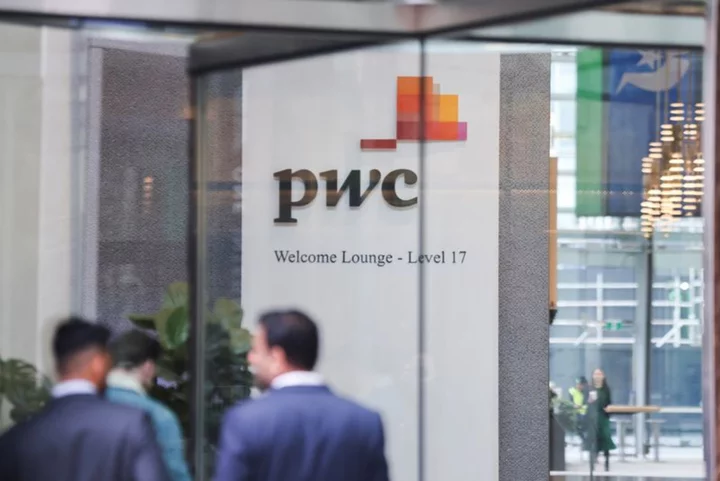
PwC Australia spin-off Scyne Advisory cuts 78 jobs
By Lewis Jackson SYDNEY PwC Australia said on Thursday that dozens of staff who had been set to
2023-10-26 14:55

Taiwan ex-colonel gets 20 years for spying for China
The retired officer was convicted of recruiting active-duty officers to give China military secrets.
2023-10-26 14:53

Music streaming was 2022's top moneymaker for songwriters, composers
Streaming became the largest source of income for composers and songwriters in 2022 and helped boost their collections
2023-10-26 14:27
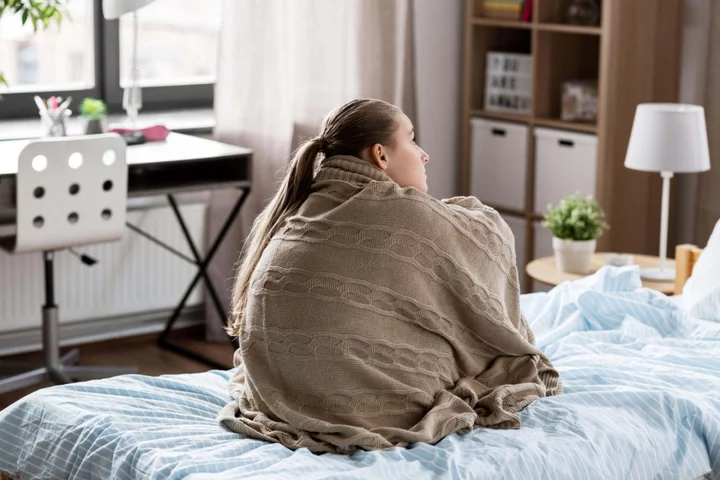
Hibernation mode: 5 small self-care adjustments to make before the clocks change
With the clocks going back on October 29, longer, darker nights are imminent – and many of us may be nervous about how this could impact our wellbeing. But, there are some little acts of self-care that could help. Here’s how to switch up your self-care routine as the clocks change… 1. Spend more time outdoorsIt may be getting colder, but time outside could be the best thing for you to protect your emotional welfare as the shorter days draw in. “When the clocks change, the internal body clock, our circadian rhythm, has to reset and it can become out of sync with our standard night-and-day cycle. It can take a few days for our body to adjust to the new sleep pattern, which can affect our hormones and temperature,” explains Dr Harriet Leyland, clinical advisor at myGP. To mitigate this, “spend more time outdoors”, she suggests. “Sunlight can alleviate drowsiness as it limits the release of melatonin, a hormone that induces tiredness and gets you ready for bed.” Jodie Relf, a Pilates instructor and registered dietitian from myOva, suggests making this part of your daytime routine. “[Getting outside] can be more challenging once the clocks have changed, it’s often dark for many of us both going to and returning from work. Therefore trying to get outside during the day, at lunchtime, perhaps, can be beneficial in the winter months,” says Relf. 2. Think about your body temperatureYou may be feeling the cold outside, but we don’t want to overheat indoors – especially at bedtime. “We sleep better in a cooler environment, with the ideal bedroom temperature reported to be a cool 16-17C,” says Dr Guy Meadows, co-founder and clinical lead at Sleep School. “For best sleep, switch off the central heating and swap your lightweight summer duvet for a higher tog winter one. Alternatively, use a combination of sheets, quilts and blankets, as this allows you to more easily regulate your temperature at night for better sleep.” 3. Prepare for good sleepIf you always struggle with sleep when the clocks change, give yourself a helping hand by being prepared. “Gradually adjust your bedtime in the few days leading up to the clocks changing – go to bed 15-30 minutes earlier each night for a few nights in the lead-up,” suggests Meadows, explaining this will help with the body-clock switch. 4. Eat a colourful plate While you may just want stodgy comfort food to warm the chillier evenings, eating well is one of the best ways to support your overall wellbeing – aiding energy, immunity, mood and sleep. “Eat a balanced diet with a colourful variety of plant foods including fruits, vegetables and whole grains, as well as lean protein,” explains Dana Moinian, a psychotherapist at The Soke. “Avoid heavy or high-sugar meals close to bedtime.” 5. See friends While social plans may have wound down compared with summer, hibernating and distancing yourself too much could be damaging to your wellbeing. “Spend time with friends and loved ones,” says Moinian. “Socialising naturally boosts your mood and reduces stress levels.” So get the diary out and plan in some fun outings and get-togethers! Read More 13 possible cancer symptoms you should get checked out Neglecting women’s health at work could cost UK economy £20.2bn a year – analysis Nearly three-quarters of mothers feel invisible, study suggests The best ways to work-out in 22 minutes – as study finds this is magic number for offsetting ‘negative impact of sitting’ What crops will we be growing in the future, as climate change alters the landscape? As Rebecca Adlington shares heart-breaking miscarriage news: How to support others experiencing baby loss
2023-10-26 14:24

Analysis-War clouds Israel's interest rate outlook
By Steven Scheer and Karin Strohecker JERUSALEM/LONDON Israel's war with Palestinian militant group Hamas has upended expectations of
2023-10-26 14:18
